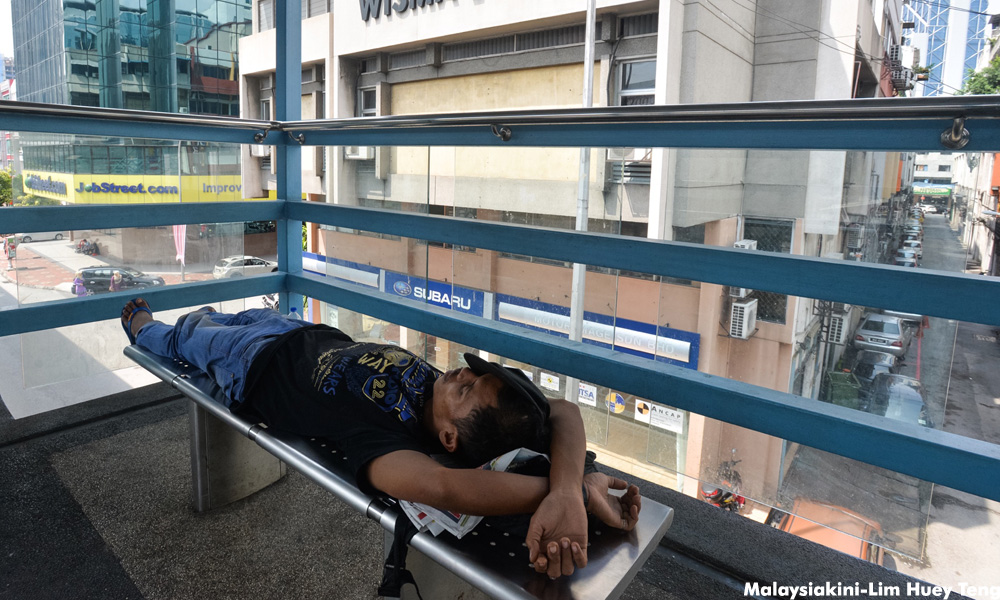LETTER | Given the present rising anxiety regarding the spread of the deadly Wuhan virus, it could be easy to miss the growing concern and the rising doubts over the emerging Shared Prosperity Vision (SPV2030) that will be introduced in Parliament in the third quarter of this year.
The adviser to the Economic Affairs minister, Khalid Jaafar has emphasised through a Bernama report today that "SPV2030 was in no way a raced-based policy but a needs-based one, aimed at narrowing the economic gap in the context of income, irrespective of race".
Khalid added that "to say that the SPV2030 is a rehash of the New Economic Policy (NEP) was a misconception".
Economic Affairs Minister Mohamed Azmin Ali, in his Ministry's latest report card, has also mentioned that his ministry had conducted 390 engagement sessions with various parties to prepare the 12th Malaysia Plan that will crystalise the implementation of the SPV2030.
However, despite their laudable efforts to explain the SPV, there is still serious considerable doubt, as to whether the SPV will be different and more progressive than the archaic and sometimes discredited New Economic Policy (NEP).
I recall that those of us who helped design the NEP were happy at that time, that it was meant to eradicate poverty regardless of race. It was implemented faithfully in the initial stages but soon, it was abused with uneven application and implementation. Non-Malays, and indeed many poor Malays, felt left out and alienated. Thus, the economy did not realise its full potential. Neither did the NEP adequately achieve national unity in the later years of its implementation.
Questions and doubts
So the questions that loom large in the minds of many is whether the SPV will also have high aspirations but turn out with low expectations?
There is, therefore, a need for the planners and especially political leaders to:
Set up effective socio-economic safeguards in the 12th Plan, to ensure that a basic needs policy is implemented fairly and properly
There will be efficient monitoring systems that will assure the public in a more transparent manner that the government's good policies are being actually achieved.
It is vital that we succeed in getting the full support of all sectors of Malaysian society. This is a prerequisite for greater national unity and prosperity and progress for all races. No one should feel alienated or marginalised. The poor and unfortunate will not grudge equal opportunities for all races who need equal and equitable treatment. Neither will any of our religions and values encourage unfairness.

Income gap must be narrowed
Thus, I would appeal to the government to publicise the principles of the SPV 2030 and explain more fully how the SPV would affect the poor, even before the 12th Plan is presented to Parliament later this year. Only then the present lingering doubts of all races, about SPV 2030 and its association with the NEP, will be removed.
Bumiputeras, sadly, still constitute most of the poor in our country. We must help them advance further. But we must also allow other poor Malaysians to move forward and not stagnate and become anti-social and a drag on our economy.
While the income gap between the Bottom Income 40 percent and Middle Income 40 percent groups should be narrowed, surely we have to also narrow the income gaps between them and the Top 20 percent income earners in our country. How else can we have more equal opportunities in our country and more socio-economic and political stability and stronger national progress?
SPV 2030 a major cure
Given the viruses of polarisation, racism and religious bigotry now plaguing our country, SPV 2030 could be the major cure to most of our national problems.
But it should not be like the divisive and debilitating NEP, which was often abused in its implementation.
This may indeed be our last chance to restructure our economy to make it serve the basic needs and human rights of all our people, for a better Malaysia for all.
The writer is chairperson, Centre for Public Policy Studies, Asian Strategy and Leadership Institute.
The views expressed here are those of the author/contributor and do not necessarily represent the views of Malaysiakini.

